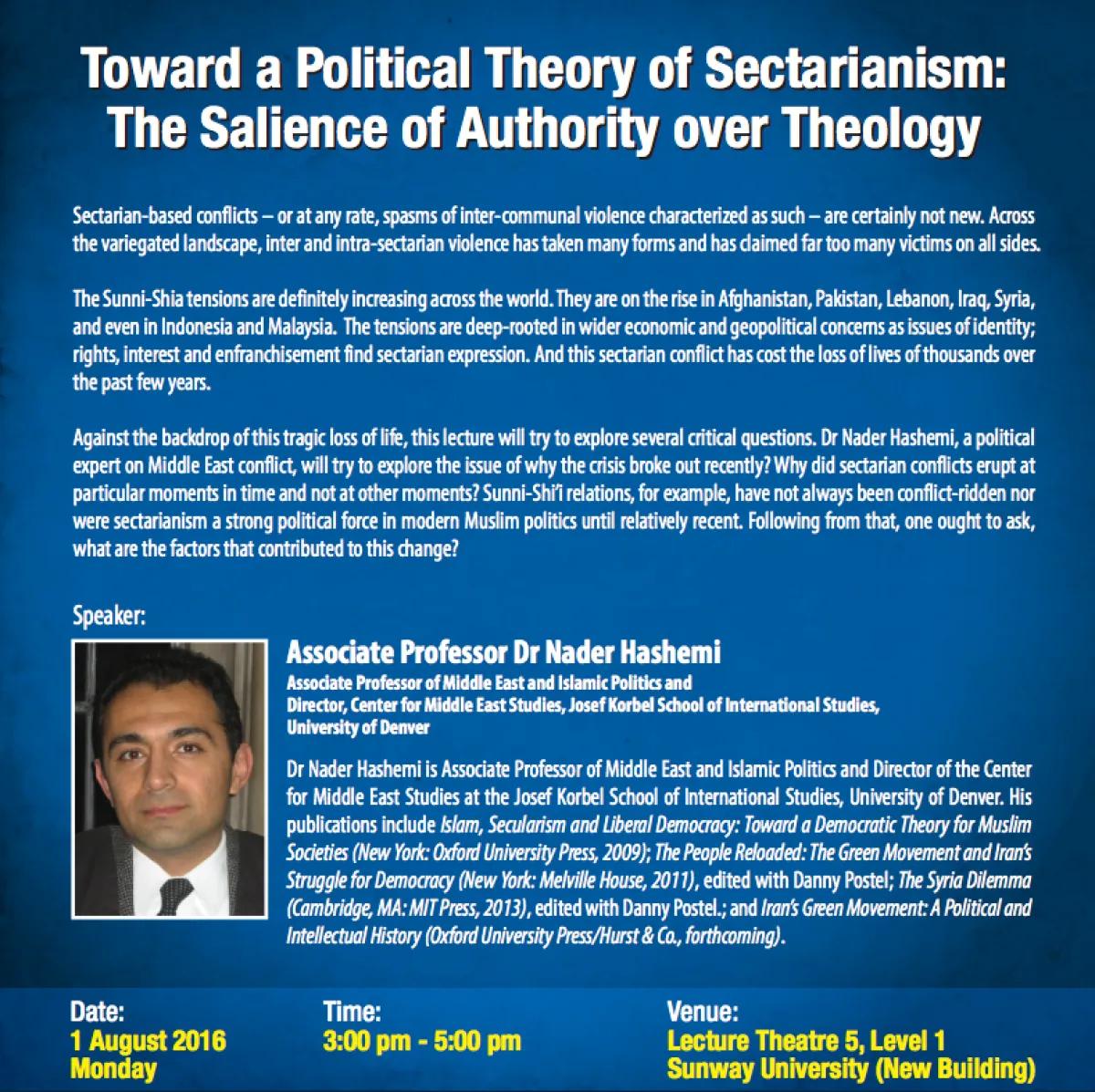Abstract
Sectarian-based conflicts – or at any rate, spasms of inter-communal violence characterized as such – are certainly not new. Across the variegated landscape, inter and intra-sectarian violence has taken many forms and has claimed far too many victims on all sides.
The Sunni-Shia tensions are definitely increasing across the world. They are on the rise in Afghanistan, Pakistan, Lebanon, Iraq, Syria, and even in Indonesia and Malaysia. The tensions are deep-rooted in wider economic and geopolitical concerns as issues of identity; rights, interest and enfranchisement find sectarian expression. And this sectarian conflict has cost the loss of lives of thousands over the past few years.
Against the backdrop of this tragic loss of life, this lecture will try to explore several critical questions. Dr Nader Hashemi, a political expert on Middle East conflict, will try to explore the issue of why the crisis broke out recently? Why did sectarian conflicts erupt at particular moments in time and not at other moments? Sunni-Shi’i relations, for example, have not always been conflict-ridden nor were sectarianism a strong political force in modern Muslim politics until relatively recent. Following from that, one ought to ask, what are the factors that contributed to this change?




